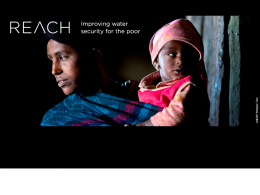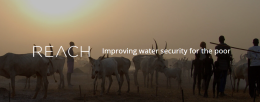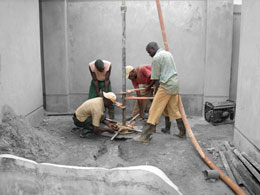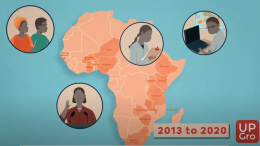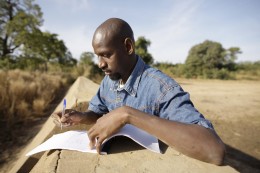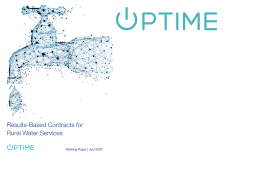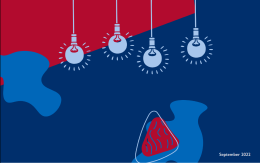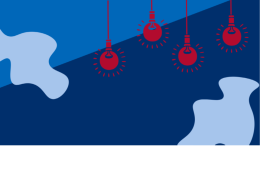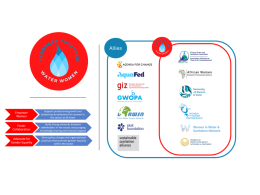Highlights of RWSN's projects, partnerships and knowledge products
Collaborations
REACH: Improving water security for the poor
A global research programme to improve water security for millions of poor people in Asia and Africa.
Project start: 2015 • Project finished: 2022
Collaborators: Oxford University, UNICEF, Water and Land Resource Centre, Bangladesh University of Engineering and Technology, icddr,b, University of Dhaka, University of Nairobi, IFPRI, IWA, RWSN, IRC.
Funder: DFID
Summary
REACH is a seven-year, global programme of research (2015-2022) led by Oxford University and funded by the UK Department for International Development (DFID) that aims to improve water security for over 5 million poor people by 2022.As a Research into Action partner, the Rural Water Supply Network will support the design and implementation of the programme’s communications strategy, supporting the uptake of the research findings and ensuring that they translate into positive policy and practice outcomes.
Celebrating the REACH Programme
A Decade of Transforming Water Security
Project start: 2015 • Project finished: 2025
Collaborators:
Funder:
Summary
As the REACH programme concludes, we reflect on a decade of dedicated research and impactful interventions aimed at enhancing water security for vulnerable communities worldwide. Funded by the UK's Foreign, Commonwealth & Development Office (FCDO), REACH has significantly contributed to the global water security agenda.Anna Nileshwar from the FCDO noted, "The FCDO-funded REACH programme has exceeded our expectations in so many ways, improving water security for over 10 million people worldwide. The wealth of in-depth and interdisciplinary research developed over 10 years has hugely expanded the evidence base and will guide the UK’s approach to development for better water security worldwide."
By celebrating the culmination of the REACH programme, we acknowledge the collective efforts of all partners, researchers, and communities involved. The insights and lessons learned will continue to inform and guide future efforts in achieving sustainable water security for all.
Please visit the REACH website to continue building on the programme’s impact:
Professionalising Manual Drilling
UNICEF, Skat Foundation
Project start: 2013 • Project finished: 2014
Collaborators: UNICEF, Skat Foundation
Funder: UNICEF, Skat Foundation
Summary
Building and supporting local enterprises to develop markets and undertake manual drilling in a professional manner.
UPGro – African Groundwater 2020
Final report from Unlocking the Potential for Groundwater for the Poor
Project start: 2013 • Project finished: 2020
Collaborators: Skat Foundation, Richard Carter & Associates + research teams from across Africa and Europe.
Funder: UK's Department for International Development (DFID), Natural Environment Research Council (NERC) and in principle the Economic and Social Research Council (ESRC)
Summary
Unlocking the Potential of Groundwater for the Poor (UPGro), was a seven-year international research programme (2013-2020) which was jointly funded by UK’s Department for International Development (DFID), Natural Environment Research Council (NERC) and the Economic and Social Research Council (ESRC).Nearly 200 of the world’s best researchers from more than 50 organisations across Africa and Europe were focused on improving the evidence base around groundwater availability and management in Sub-Saharan Africa. The goal has been to ensure that the hidden wealth of Africa’s aquifers benefit all citizens and the poorest in particular. UPGro projects have been interdisciplinary, linking the social and natural sciences to address this challenge
Writing Course for WASH Professionals
Skat, WaterAid, SHARE, Waterlines Journal
Project start: 2012 • Project finished: -
Collaborators: RWSN, Skat, WaterAid, SHARE, Waterlines Journal
Funder: SHARE
Summary
The ChallengeOver 2.5 billion have no access to improved sanitation and 780 million people lack access to improved sources of drinking water, according to the WHO/UNICEF Joint Monitoring Programme (2012). The numbers are staggering. The suffering is real. The challenge to overcome is immense. Success can only come through a combination of action and communication. Both are critical.
We have a vision where Water, Sanitation and Hy-giene (WASH) professionals are regularly sharing and learning – at all levels from districts to global networks. As a sector, we also need to reach out and communicate with wide range of audiences: politicians, policymakers, companies, water users, and the public in all countries.
We often have the content: experiences, data, pro-jects, methodologies and stories of success and failure. What we are often not great at is explaining ourselves to others in a way that leads to positive action.
We want to change that.
Technology Applicability Framework (TAF) & Technology Introduction Process (TIP)
WASHtechnologies.net
Project start: 2011 • Project finished:
Collaborators: Skat Foundation, WaterAid, GIZ. The WASHTech consortium consisted of IRC WASH, WaterAid, Cranfield University, Skat Foundation, WSA, TREND, KNUST and NETWAS
Funder: Currently un-funded
Summary
The TAF is a tried-and-tested way of helping organisations improve their understanding of whether a technology that is designed to tackle a Water, Sanitation and Hygiene (WASH) problem will work in a particular context. This improved understanding can be used to support decisions on:1. Whether or not to invest or support the introduction of Technology X in Context Y
2. Whether or not to continue to invest, support or approve the introduction of Technology X in Context Y
3. Is Technology X ready to scale-up? And what are context-sensitive factors that may play a major role in the success or failure of widespread promotion and uptake?
Although the TAF was developed for WASH technologies, it can be used for any type of technology or product, and has been adapted by others for renewable energy technologies.
Myths of Rural Water Supply
Learning from past failures, building on successes
Project start: 2010 • Project finished:
Collaborators: UNICEF, Skat, WaterAid, Water & Sanitation Program, African Development Bank, Swiss Development Cooperation
Funder:
Summary
Ensuring that rural dwellers around the world do not have to walk for hours to collect sufficient and safe drinking water is a huge challenge. In 2010, RWSN published "Myths of the Rural Water Supply Sector" which raises issues for those of us who are involved in trying to improve rural water supplies, whether as donor, Government or NGO; program manager or practitioner. It takes a hard look at our limited achievements, points to areas where our approaches need to be radically improved and sets some challenges.
'Smart Handpumps'
Handpumps can be better - who is leading the way?
Project start: • Project finished:
Collaborators: Several
Funder: Several
Summary
Drilling a borehole and installing a handpump is a common way to improve access to water for rural (and urban) people in many parts of the world. However, the failure of these water points is shockingly high, a third in many African and Asian countries and often much higher.New communications technology is opening up the possibilities for 'Smart Handpumps' - handpumps that actively record how and when they are used and transmits that data to an organisation who can use that information to (a) mobilise targeted maintenance and repairs; (b) identity priority areas for future improvements and investments; (c) to understand the user needs better, and main other reasons that shift rural water supply away from 'fire-and-forget' projects and towards water services that last and that reach everyone.
Uptime: Delivering Reliability for 100 Million People by 2030
Temps de fonctionnement : Garantir la fiabilité à 100 millions de personnes d'ici 2030
Project start: • Project finished:
Collaborators: FundiFix, Water for Good, Water Mission, UDUMA, Whave, Oxford University
Funder: GIZ, Osprey Foundation
Summary
Uptime is a global consortium working to deliver drinking water services to millions of rural people through long-term, performance-based funding to achieve Sustainable Development Goal 6.1.
Technological Innovations for Rural Water Supply in Low-resource Settings
CHALLENGES OF RURAL WATER SUPPLY
Project start: • Project finished:
Collaborators: Aquaya Institute, Aguaconsult, ATREE, KNUST, RWSN, Skat Foundation, Safe Water Network, Water Mission
Funder: USAID
Summary
Globally, the Sustainable Development Goals (2015–2030) are driving efforts to increase water service levels, while ensuring that services are affordable and no vulnerable population is left behind. In concert with global development goals, the United States Agency for International Development (USAID) Rural Evidence and Learning for Water (REAL-Water; 2021–2026) program focuses on identifying ways to expand water access and safety in rural areas of low- and middle-income countries. Rural areas pose special challenges for water supply, as homes may be too few or too dispersed to justify the cost of installing underground pipes from a high-quality water supply source or a centralized drinking water treatment facility. As of 2020, the majority of people lacking even basic water services (i.e., water from a protected source requiring no more than 30 minutes to collect) lived in rural areas.
Financial Innovations
for Rural Water Supply in Low-Resource Settings
Project start: • Project finished:
Collaborators: REAL-Water consortium members: The Aquaya Institute, Aguaconsult, the Kwame Nkrumah University of Science and Technology (KNUST), the Skat Foundation’s Rural Water Supply Network (RWSN), Safe Water Network, and Water Mission.
Funder: USAID
Summary
Millions of people in rural areas of low- and middle-income countries still lack access to basic water services. In fact, as of 2020, the majority of people without basic water services lived in rural areas. The United States Agency for International Development (USAID) Rural Evidence and Learning for Water (REAL-Water) program is working to address this issue by identifying ways to expand water access and safety in rural areas.One of the challenges of providing rural water supply financing is that the populations are smaller, more dispersed, and poorer than their urban counterparts. This may reduce opportunities for economies of scale and complete cost recovery. To overcome these challenges, the REAL-Water program is focusing on identifying innovative and promising financing or funding mechanisms that can be used in small villages and dispersed settlements.
RWSN Early Webinar Series 2024
April - June 2024
Project start: • Project finished:
Collaborators:
Funder:
Summary
The series featured two webinars of the Stop the Rot initiative, and webinars from the Leave No-one Behind, Data for Action, and Self-Supply themes.Stop the Rot: Experiences and challenges of preventing rapid corrosion of rural water supply infrastructure
30 April, 14:00 CEST
Rapid handpump corrosion and the underlying causes have been known for decades, and yet still occur. This webinar presented a World Bank technical note that calls for the prevention of rapid corrosion through regulation alongside experiences from Uganda and Zambia.
Incontinence: An urgent hidden issue for rural water supply
4 June, 09:00 CEST
This webinar by the RWSN Leave No-one Behind theme raised awareness of the need to pay attention to the needs of people living with incontinence across all ages. This webinar enabled RWSN members and attendees to understand the issue of incontinence and why it matters for rural water supply.
Artificial Intelligence and Water Management: Opportunities, Effectiveness, Limitations and Ethics
11 June, 14:00 CEST
This webinar by the RWSN Data for Action theme introduced network members to the opportunities that AI can bring to water management challenges of the 21st century by sharing practical examples of AI applications in rural water supply. However, the webinar also highlighted any limitations and ethical issues members need to be aware of before using AI by sharing real-world examples of AI’s limitations and/or ethical grey areas.
Supported self-supply: case studies from four continents
18 June, 09:00 CEST
Self-supply exists in almost all countries around the world and in specific times and areas can be the dominant form of service provision. Nevertheless, information on this approach typically is scattered and hard to find – mostly due to the passive role of government and the lack of reporting/monitoring mechanisms. This webinar by the RWSN Self-Supply theme explored the case studies of formal programs to support self-supply from four continents.
Stop the Rot: The quality challenge - ensuring a high standard of rural water infrastructure from the outset
25 June, 14:00 CEST
Poor quality infrastructure continues to be a problem in rural water supplies. This webinar provides a platform to discuss the issue, including looking at some of the types of quality problems encountered and experiences of several organizations who have managed to consistently procure quality components.
Celebrating the life of Louisa Gosling
Project start: • Project finished:
Collaborators:
Funder:
Summary
It is with deep sadness that we inform our members and partners of the passing of Louisa Gosling, former Chair of the RWSN Executive Committee (2019-2022), former Theme Leader of the Leave No One Behind theme (2011- 2021), and a great champion of Human Rights to water and sanitation.Louisa was an inspiration for many, including the younger generation of WASH professionals at the early stages of their career. For those who were fortunate enough to have had the opportunity to work with her in person, Louisa always taught them something new each time, and was never afraid to challenge - always politely - in a way that got people thinking more deeply, more widely and profoundly... Louisa was exceptionally engaged with and a constant source of support for professionals as the field of equity and inclusion evolved and new topics emerged. Her open-minded nature was one of the critical catalysts of the fast-paced progression of efforts to leave no one behind in the WASH sector globally, which clearly shone through her work for RWSN, whether it be through leading webinars, or her passionate involvement in RWSN online discussions. Louisa had a constant presence in the working lives of inclusion experts. She actively made efforts to ensure that the younger generation of professionals had a voice, striving to constantly give them a platform, whether it be through actively involving them as part of conference workshops to encouraging them to write about their work far and wide on platforms ranging from the SuSaNA forum through to WaterAid’s WASH Matters blog.
Her first-hand experience on the ground working with marginalised groups over the years shaped her leadership of the RWSN Leave no one behind theme, leaving an unparalleled legacy for theme leaders who would follow in her footsteps in years to follow.
You can follow Louisa’s funeral and memorial, and share your condolences with her family using the link below.
Stronger Together! Coalition
Water Women
Project start: • Project finished:
Collaborators:
Funder:
Summary
Water and WomenAchieving Sustainable Development Goal (SDG) 6 for Clean Water and Sanitation, as well as SDG 5 on Gender Equality needs a holistic and systematic approach. This includes understanding the workforce behind the water resources and WASH systems sector, as skill shortages continue to affect the lack of progress on these SDGs. Data reveals that women only make up 21% of jobs in water utilities (1) and are under-represented in terms of participation at all levels in the sector (2). Visible and invisible barriers continue to hinder women to engage, develop, and fulfill their careers. This means that not all potential contributors are engaged, which leads to negative impacts, such as missing out on diverse thinking, creative solutions, and the improvement of overall sector performance. Therefore, it is necessary to advocate and work towards a strong, gender-equitable sector for water resources and WASH systems.
(1) World Bank Water Data
(2) Taking Stock of Progress Towards Gender Equality in the Water Domain (2021)
 Google Übersetzer
Google Übersetzer

